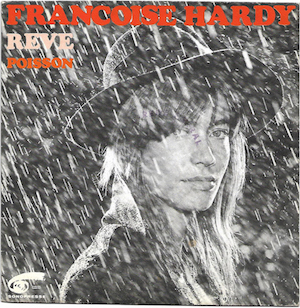- Françoise Hardy : Sonopresse, An Aside
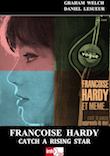
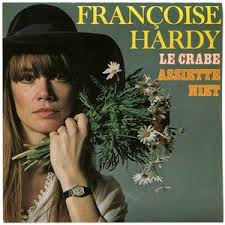
With her most popular period now over, Hardy sought out a certain
artistic intimacy – particularly on the album where she collaborated with
Tuca, the Brazilian singer, guitarist and composer (Valeniza Zagni da
Silva, 1944-1978).
In 1970, Hardy set up a new production house, Hypopotam, which was distributed not by Vogue but by Sonopresse. Soon she would set up her own publishing company too, called Kundalini. (“I had a very advantageous contract that left me a lot of freedom,” she said of it.) However, a lack of live promotion meant that the albums from this period didn’t sell as well as her earlier releases. This slump in sales lasted for two years, until Hardy parted company with her distributor. “Françoise’s marginal nature was blamed for the fact that she suffered setbacks with her record company. Too dreamy to be a businesswoman, she embarked on an independent production that brought her more trouble than satisfaction. And it was during this period, in 1972, when she didn’t have a distributor that she made her masterpiece of an LP.” (Eric Vincent, Salut les Copains, no. 137).
This break didn’t displease Hardy and even gave her the chance to
indulge in her true passion: astrology. Before she almost made this into a
full-time job, Salut les Copains had painted this astral portrait of her:
“Saturn opposed to Venus... a discord that may seem daunting at the
start: it is the risk of not being loved, it is the fear of losing an acquired
affection, it is the tendency to believe that all joy comes at the price of
pain. It is also an inclination towards pessimistic, or at least anxious,
romanticism, of which almost all of her songs are tainted.”

A strange trio of disparate singles
The trio of singles in question begins with Le Crabe (Sonopresse HY
1101), which failed to set many pulses racing. That’s a shame because
the A-side is truly excellent: sad and cruel at the same time. The flip,
Assiette Niet, from the pens of Jean-Noël Dupré and Mireille (Hartuch), is
as brilliant as it is ridiculous. It gives more than a nod to the perky style of
songs Mireille performed in the 1930s – which, of course, made it a
rather old-fashioned musical aside in 1970.
Next up was the 45 Soleil, a cover of a track by Howard Tash and Sandy
Alpert. (Interestingly, the song is one of only two that Hardy sang in
Spanish, as Sol. The other was J’Ai Coupé Le Téléphone, which became
El Corte Telefono.) The B-side of Soleil was Je Fais Des Puzzles, by
Hugues de Courson and Patrick Modiano plus Mick Jones and Tommy
Brown. The latter two were better known as accompanists for Johnny
Hallyday and Sylvie Vartan.
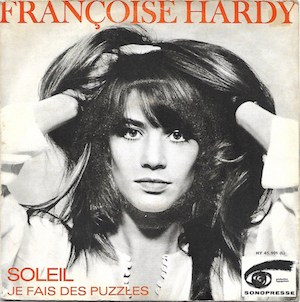
The third release of the strange trio was Dame Souris Trotte. With its
surreal text, it could have come straight from the pen of John Lennon if
he had preferred mice to walruses. Hardy was unhappy with the result
and sorry that she had entrusted the production to Jean-Claude Vannier.
He, she said, had “transformed a lovely Brazilian lullaby into a frantic
cavalcade of charm from which all charm had disappeared”. The B-side,
Point, was a more musically successful arrangement from Mick Jones
and Tommy Brown.
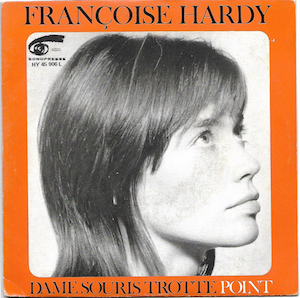
1970 also saw an album released (Sonopresse HY 30901), but it was
nothing more than a compilation packaged in a rather ugly sleeve.
More interesting is Hardy’s second German-language album, Träume (LP
Philips 6305 008). The title track featured in the soundtrack to François
Ozon’s film Gouttes D’Eau Sur Pierres Brûlantes (Water Drops on
Burning Rocks) but was, arguably, not her finest work.
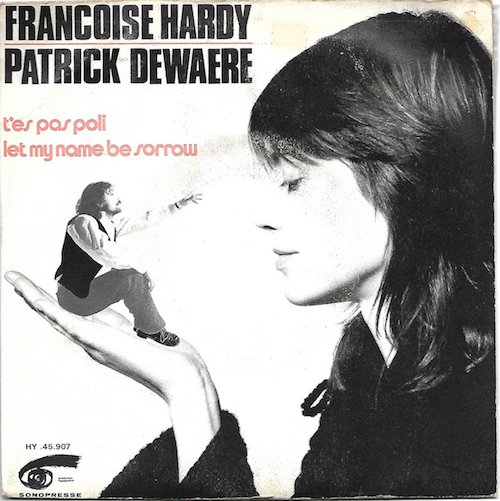
An unlikely duo
Actor Patrick Dewaere came to be known for playing dropouts – and his sole duet with Hardy did little to salvage that image. 1971’s T’Es Pas Poli was pretty dire. The B-side, Let My Name Be Sorrow, was the better of the two sides. (The latter, a cover of Gilles Marchal’s Quand Je Te Regarde Vivre, was also recorded by Mary Hopkin.).
The accompanying LP is generally known as the tenth album (Sonopresse HY 39 902). It was a real return to form for Hardy. Highlights include Un Petit Sourire, Un Petit Mot and Mon Monde N’Est Pas Vrai, a version of the Simon Napier-Bell and Vicki Wickham composition Never Learn to Cry, which Hardy had already cut for her 1968 album En Anglais.
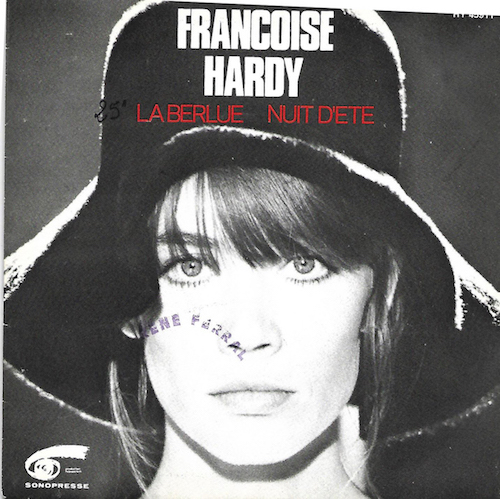
Other high points were Effeuille-Moi Le Coeur, the rather short Tu
Ressembles À Tous Ceux Qui Ont Eu Du Chagrin and L’Ombre, a song
that had been written in English for Johnny Hallyday by Mick Jones and
Tommy Brown as Strange Shadows. Hallyday also cut it in French as
Son Amour Pour Un Jeu, but it seems that Georges Aber’s lyrics weren’t
to Hardy’s liking, so she commissioned Pierre Delanoë to write new ones.
Another Jones and Brown composition, Song of Winter, became Fleur De
Lune. The track San Salvador used a traditional sound that had been
popularised by Narciso Yepès in the film Jeux Interdits.
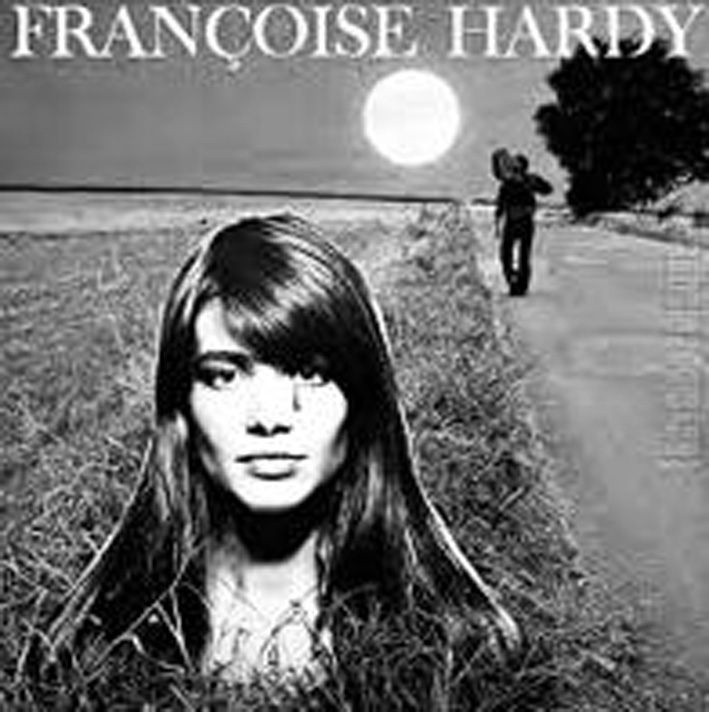
1971
The 11th Album (reference Sonopresse HY 39 902), often referred to as La Question, is an album of friendship. Tuca had entered Hardy’s life and composed all 12 tunes on the album, produced it and played guitar on it. Hardy took pleasure from his pleasure in the work. As for the fans, in general, they acknowledged it as a very nice album but, at the same time, knew it wasn’t really aimed at them. Instead, Hardy was pitching herself at an altogether different audience.
Hardy liked the result. “This album seemed to me more consistent, more classy and sophisticated than the previous ones, and if, unlike them, it didn’t speak to the wider public, at least I can believe it touched others... When I went to Japan, journalists confessed their preference for it.” (Le Désespoir Des Singes... Et Autres Bagatelles) “At that time, I veered towards a more sophisticated sound. I like sophistication, in music as in other things.” (Paroles Et Musique Nouvelle Série no. 9).
The album received favourable reviews in the press, but few TV appearances and little radio airplay hindered sales. “With the Brazilian guitarist Tuca, she made an LP that was rich and ‘ultra-professional’, but unfortunately it was badly received by the public.” (Eric Vincent, Salut les Copains no. 137).
As for the songs, Le Martien was described by Britain’s Record Collector
magazine (issue no. 310) as one of the most sensual love songs she had
recorded. Many in France would have countered that its flip, Chanson
D’O, fitted that description better. A single taken from the album, Même
Sous La Pluie / La Question (Sonopresse HY 45 009), sold poorly.
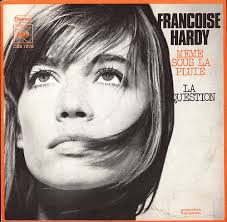
1972...
The 12th Album (Sonopresse HY 39 903) marked a return for Hardy as a writer and composer. She penned the words and music for 11 of the album’s 12 tracks. Unfortunately, however, the record-buying public again gave it a wide berth. In fact, its best songs became better known in other versions.
Et Si Je M’En Vais Avant Toi became better known when Etienne Daho recorded it for his platinum-selling album La Notte, La Notte in the 1980s. And Le Cafard, covered by former punk Jacno, isn’t unlistenable.
Quand Mon Amour Va Prendre L’Air is pleasant but nothing more, and Ma Vie Intérieure evokes some of Hardy’s lesser cover versions of 1963- 64. Bowm Bowm Bowm however, is exceptionally good. It had been written by Mick Jones and Tommy Brown. With English lyrics, it could have been a huge UK hit for a group such as Fairport Convention or an artist like Marianne Faithfull. Instead, Hardy cut the song in Portuguese...
Pity it wasn’t recorded for her other album of the year, If You Listen. With 11 songs in English and just one in French, it illustrated her interest in the English-speaking world – but the result was rather imbalanced. Worse, some of the songs have been interpreted more convincingly by other artists. These include Randy Newman’s I Think It's Gonna Rain Today, which was covered by Dusty Springfield and others. As for Till The Morning Comes, it would have been impossible to outdo Neil Young’s original. “My Sonopresse period, which started so well with the success of Soleil and Comment Te Dire Adieu ended badly with three albums which, although far from my best, sold poorly. My contract was not renewed.” (Le Désespoir Des Singes... Et Autres Bagatelles).
However, Hardy would soon hook up with Michel Berger, mentor to
Véronique Sanson and the man behind the return of fellow yé-yé girl
France Gall. The 1973 album Message Personnel brought Hardy back into the mainstream and enabled her to remain a huge star to this day.
